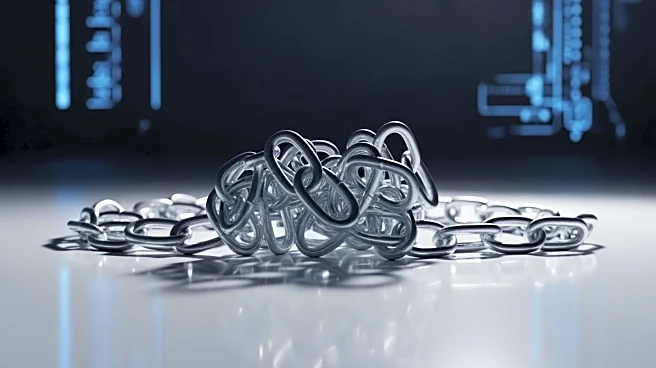What's Happening?
Slipknot, the Grammy-winning metal band, has initiated a federal lawsuit against the anonymous owner of the domain Slipknot.com. The band accuses the domain holder of cybersquatting and selling counterfeit merchandise under their name. Filed in a Virginia
federal court, the lawsuit aims to reclaim the domain, which has been under the control of an unknown registrant since 2001. The complaint alleges that the site misleads fans by hosting ads and links for unlicensed Slipknot-branded products, including replica masks and apparel. Slipknot argues that this activity constitutes commercial exploitation, violating the Anti-Cybersquatting Consumer Protection Act (ACPA). The band seeks control of the domain, transfer of ownership, and damages for the alleged infringement.
Why It's Important?
This lawsuit highlights the ongoing challenges artists face in protecting their digital identities and trademarks. For Slipknot, reclaiming the domain is crucial to maintaining brand integrity and ensuring fans access legitimate merchandise. The case underscores the broader issue of cybersquatting, where individuals register domain names of well-known brands to profit from their reputation. If successful, the lawsuit could set a precedent for other artists and brands facing similar issues, reinforcing the legal protections available under the ACPA. The outcome could impact how digital rights are enforced and the measures artists take to safeguard their online presence.
What's Next?
The legal proceedings will determine whether Slipknot can reclaim the domain and receive compensation for the alleged damages. The case may prompt other artists to review their digital assets and take legal action against similar infringements. The court's decision could influence future interpretations of the ACPA, potentially leading to stricter enforcement against cybersquatting. As the lawsuit progresses, it may also encourage domain registrants to reconsider their practices, especially those involving high-profile brands.
Beyond the Headlines
The lawsuit raises questions about the ethical implications of domain registration practices and the responsibilities of domain registrars in preventing misuse. It also highlights the cultural significance of digital identity for artists, as maintaining control over online representations is increasingly vital in the digital age. The case may lead to discussions on how to balance free enterprise with the protection of intellectual property rights in the digital realm.














